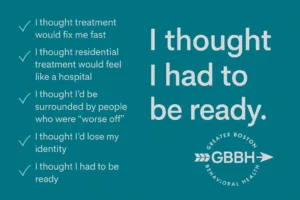If you’re reading this, you’re probably scared.
Not dramatic-scared. Not crying-on-the-floor scared. But the quiet, logical kind—the one where your brain keeps looping:
“What if I can’t do it?”
“What if it makes things worse?”
“What if I go to treatment and still feel this way?”
I know that fear. I had it too. Before I entered a residential treatment program, I couldn’t stop imagining the worst-case scenario. I’d never done anything like that before. It felt like stepping into a fog without a map.
But what actually happened surprised me—in the best ways.
This is a gentle walk through what I expected versus what I actually experienced. No pressure. Just one person letting you peek behind the curtain of something that, yes, is scary—but also might be exactly what you need.
I Thought Residential Treatment Would Feel Like a Hospital
I pictured white walls. Locked doors. Harsh lighting. A clipboard in someone’s hands while I sat on a cot, trying to seem “well enough.”
That image came from movies. And fear.
In reality? The residential treatment program in Massachusetts I entered felt nothing like that. It was warm, even peaceful. There were couches, soft spaces, natural light. It wasn’t luxury—but it was safe.
I didn’t feel like a patient. I felt like a person who was allowed to rest.
I Thought I’d Be Pushed to Share Everything Right Away
I was terrified I’d be expected to share my story in front of strangers on the first day. That I’d be emotionally naked before I even remembered people’s names.
What actually happened? No pressure. No spotlight. Just quiet invitations.
At Greater Boston Behavioral Health, the therapists gave us time. I wasn’t expected to spill everything. I was just asked to be present. Some people talked more. Some sat quietly. That was okay.
When I did speak, it wasn’t about trauma dumping—it was about naming where I was in that moment. That was enough.
I Thought It Would Be Overwhelming
I imagined an intense schedule, constant activity, emotional exhaustion. Honestly, I thought I’d be crying nonstop or shut down completely.
What I found instead was structure with space. Yes, there were therapy sessions, group meetings, and activities—but there were also breaks. Time for rest. Time to process. Even time to laugh.
No one expected you to be “on” all day. There was room for quiet moments. For walks. For coloring. For just being.
And somehow, that gentleness helped me open up more than any pressure ever could.
I Thought I’d Be Surrounded by People Who Were “Worse Off”
This was a weird fear. I worried I didn’t “deserve” to go to treatment because I wasn’t in a crisis. I thought everyone else would have more intense stories, deeper pain.
And some people did. But pain isn’t a competition—and healing doesn’t have a cutoff.
I met people who had been through things I couldn’t imagine. And I met people who just felt… stuck. Like me.
That mix reminded me: you don’t have to be falling apart to seek help. Wanting more is enough.
I Thought I Had to Be Ready
This almost kept me from going. I thought I had to be totally committed, 100% “in,” emotionally prepared.
But readiness isn’t binary. It’s not yes or no. It’s messy.
I showed up scared, unsure, and full of doubt. And that was okay.
The staff didn’t expect me to have it all figured out. They just expected me to show up. That’s what Greater Boston Behavioral Health understands—that the choice to come to treatment is the hard part. Once you’re here, the support kicks in.
I Thought Treatment Would Fix Me Fast
This one was painful to let go of.
I hoped for a transformation. I wanted to walk out “cured.” I imagined treatment would strip away the pain and leave me lighter.
What actually happened was slower—but deeper.
I didn’t leave fixed. I left equipped. I left knowing more about myself, with tools I didn’t have before. I knew how to ask for help, how to sit with discomfort, how to stay when my instinct was to run.
That doesn’t sound like magic. But it changed everything.
I Thought It Would Be a Last Resort
In my head, “residential treatment” was what you did when everything else failed. It felt like admitting defeat.
But that was shame talking.
Looking back, entering a residential treatment program in Needham, MA wasn’t the end—it was the most intentional beginning I’ve ever made.
It was a way of saying, “This matters. I matter. I’m not waiting until it gets worse.”
That shift—choosing help before collapse—was the bravest thing I’ve ever done.
I Thought I’d Lose My Identity
This was one of my quietest fears: that treatment would flatten me. That I’d become just another client. That who I was—creative, smart, sarcastic—would disappear in a system.
Instead, the opposite happened.
The more I spoke honestly, the more me I felt. I started to recognize parts of myself I hadn’t accessed in years. I remembered I wasn’t just a list of symptoms—I was someone with preferences, strengths, humor, resilience.
And no one took that from me. They helped me find it again.
Looking for a Residential Treatment Program in Boston, MA?
If you’re near Boston or surrounding areas like Newton or Waltham, Greater Boston Behavioral Health offers programs designed for exactly where you are.
Not in crisis—but in need. Not hopeless—but hurting. Not broken—but ready.
You don’t need to prove anything to get help. You just need to be open to something different.
FAQ: Residential Treatment, Gently Explained
What is a residential treatment program?
It’s a short-term mental health program where you live on-site for a period of time (usually a few weeks to a couple months) while receiving intensive support. You get structure, therapy, community, and space to heal—without outside stressors.
Do I have to talk about everything right away?
No. You’re never forced to share more than you’re ready to. Most programs encourage participation, but they also honor pacing and safety. It’s okay to take your time.
What does a typical day look like?
There’s usually a mix of group therapy, individual sessions, skill-building, wellness activities, meals, and rest. Your schedule is structured but includes space to recharge.
Is it only for people in crisis or with severe symptoms?
Absolutely not. Many people enter residential treatment feeling functional—but overwhelmed, exhausted, or disconnected. You don’t have to be in crisis to qualify.
Can I leave if it’s not a fit?
Yes. While we encourage giving the process time, no one is held against their will. You always have agency over your care.
Will I still be able to work or check in with family?
Most programs have boundaries around outside contact to protect your healing time—but there’s usually flexibility for family check-ins and structured communication. Each program has its own policy.
Call to Take the First Step
Still carrying that “what if” feeling? You’re not alone.
Call (888) 450-3097 to learn more about residential treatment program services in Boston, Massachusetts.
You don’t have to be “ready.” You just have to be willing. We’ll meet you there.


